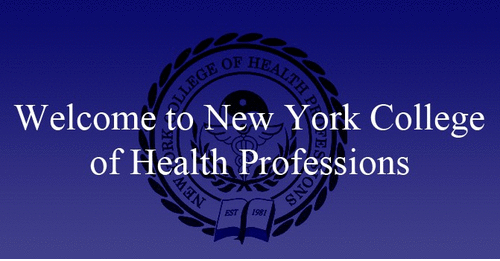Since 1980, massage therapy has become increasingly popular as a complementary medicine modality in Western society. As a result, the demand for licensed or certified practitioners has grown as well. With over 80 types of massage therapy techniques being taught nationwide, students interested in pursuing a career in massage therapy have a variety of Massage Therapy Programs to choose from. To ensure that the students are well-prepared for this competitive field, it is important that they acquire quality education from an accredited school such as New York College of Health Professions.
Prior to choosing the right massage therapy program, students should thoroughly research the field of massage therapy and explore the employment opportunities available to them upon graduation. The wide range of massage therapy techniques includes Shiatsu, Hot Stone Massage, Swedish Massage, and Prenatal Massage among others. Knowledgeable in such techniques, licensed or certified massage therapists can find employment at wellness clinics, spas, health clubs and even in hospitals and doctors’ offices.
Individuals that are already licensed health care professionals can also choose to study massage therapy in order to further their career. For example, massage therapy is in the scope of practice of registered nurses so they may enroll to learn the techniques. Due to the growing use of massage therapy nationwide, professionals can broaden their practice and gain additional clients by offering massage therapy as a complementary treatment. Some massage therapy programs also offer business management courses for practitioners that are interested in opening their own massage therapy practice upon graduating.
Another important consideration before choosing the right massage therapy program for your studies is educational requirements for your state. The practice and education of massage therapy program is regulated by most of the states in the United States to ensure that professional and ethical standards are followed by all therapists. New York State, for instance, requires that a massage therapist completes a 1000 hour program and pass the State licensing exam.
Due to the growing competition in the field, it is important to gain proper education and hands-on experience in massage therapy. The American Massage Therapy Association (AMTA) stresses the importance of choosing to attend an accredited massage therapy program such as the one offered at New York College of Health Professions. Massage therapy is a skill that requires hands-on practice as it cannot be learned through books alone or online.
New York College offers an institutionally accredited massage therapy program, the curriculum of which includes both Asian Bodywork and Swedish massage, Oriental anatomy and physiology as well as Western health sciences. Additionally, students are required to gain hands-on practice during clinical internships and complete classes in T’ai Chi Chuan, Yoga and Qi Gong to help them better understand their own body’s movements and abilities. Upon successful completion of this program, graduates receive an Associate in Occupational Studies degree. New York College was the first in the United States to award an independent massage therapy degree in therapeutic bodywork. With its main campus in Syosset, New York and 3 locations in New York City, New York College is conveniently accessible to most students residing in New York’s tri-state area.
Prior to choosing the right massage therapy program, students should thoroughly research the field of massage therapy and explore the employment opportunities available to them upon graduation. The wide range of massage therapy techniques includes Shiatsu, Hot Stone Massage, Swedish Massage, and Prenatal Massage among others. Knowledgeable in such techniques, licensed or certified massage therapists can find employment at wellness clinics, spas, health clubs and even in hospitals and doctors’ offices.
Individuals that are already licensed health care professionals can also choose to study massage therapy in order to further their career. For example, massage therapy is in the scope of practice of registered nurses so they may enroll to learn the techniques. Due to the growing use of massage therapy nationwide, professionals can broaden their practice and gain additional clients by offering massage therapy as a complementary treatment. Some massage therapy programs also offer business management courses for practitioners that are interested in opening their own massage therapy practice upon graduating.
Another important consideration before choosing the right massage therapy program for your studies is educational requirements for your state. The practice and education of massage therapy program is regulated by most of the states in the United States to ensure that professional and ethical standards are followed by all therapists. New York State, for instance, requires that a massage therapist completes a 1000 hour program and pass the State licensing exam.
Due to the growing competition in the field, it is important to gain proper education and hands-on experience in massage therapy. The American Massage Therapy Association (AMTA) stresses the importance of choosing to attend an accredited massage therapy program such as the one offered at New York College of Health Professions. Massage therapy is a skill that requires hands-on practice as it cannot be learned through books alone or online.
New York College offers an institutionally accredited massage therapy program, the curriculum of which includes both Asian Bodywork and Swedish massage, Oriental anatomy and physiology as well as Western health sciences. Additionally, students are required to gain hands-on practice during clinical internships and complete classes in T’ai Chi Chuan, Yoga and Qi Gong to help them better understand their own body’s movements and abilities. Upon successful completion of this program, graduates receive an Associate in Occupational Studies degree. New York College was the first in the United States to award an independent massage therapy degree in therapeutic bodywork. With its main campus in Syosset, New York and 3 locations in New York City, New York College is conveniently accessible to most students residing in New York’s tri-state area.


No comments:
Post a Comment